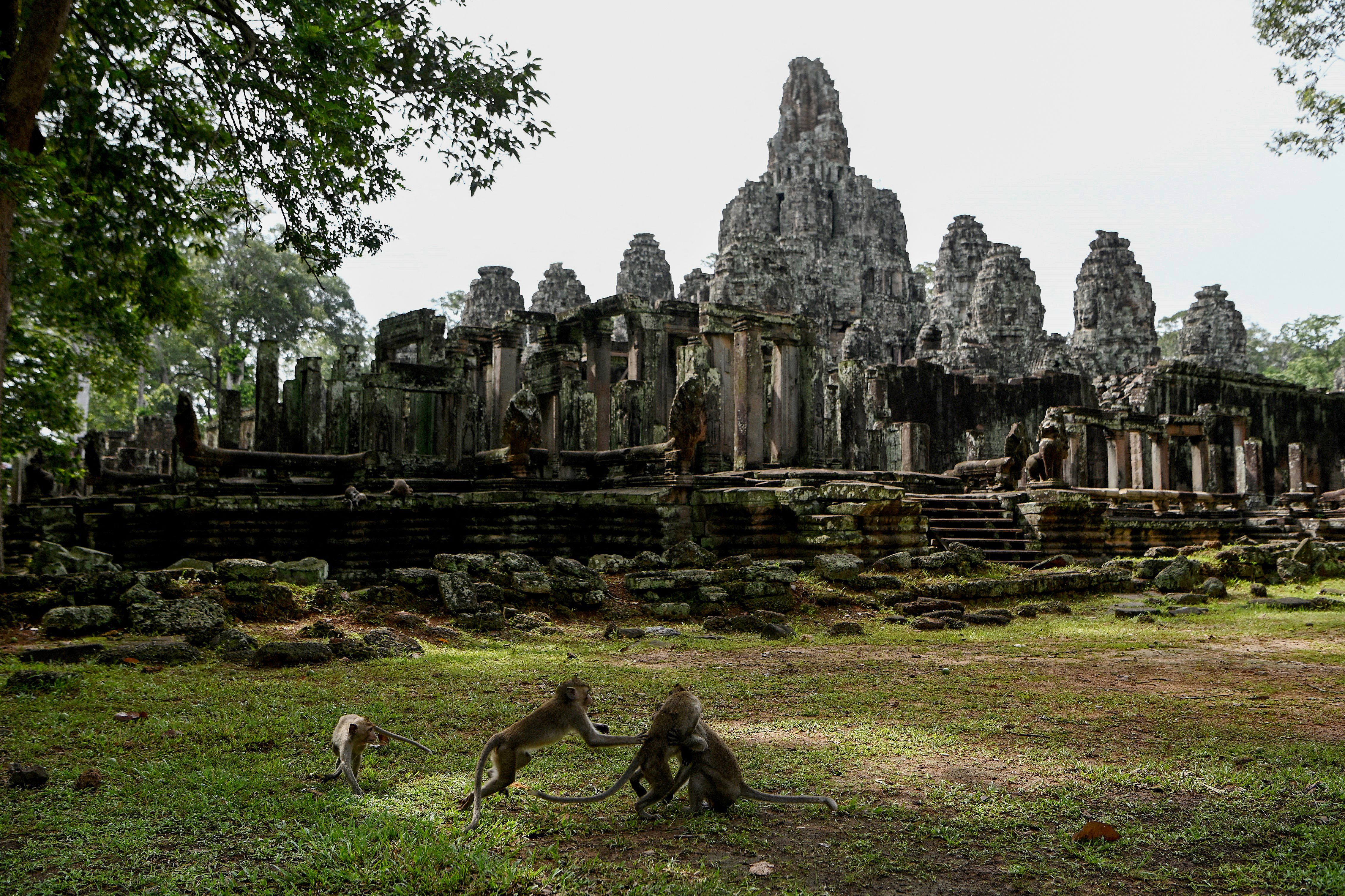Growing fears that ‘aggressive’ monkeys at iconic Asian tourist hotspot being sent for animal testing
Animal rights groups blame ‘aggressive’ behaviour of monkeys at Angkor Wat on exploitation by tourists for entertainment
Monkeys from the Angkor Wat temple in Cambodia could be sent to breeding farms that export the primates to laboratories for use as test animals, a British animal protection organisation has warned.
Action for Primates, or AfP, said it was concerned for the welfare of the monkeys after Cambodia’s Ministry of Agriculture, Forestry and Fisheries announced a census of the primates in public areas, seeking to identify and relocate aggressive ones to legal breeding farms, natural habitats, or the Phnom Tamao Zoo.
“Sending them to breeding farms is exceptionally cruel," Sarah Kite, a founder of AfP, said.
An unnamed official in the ministry told the Phnom Penh Post that the monkey capture operation at the iconic tourist hotspot had not yet commenced. It was likely to start after the Pchum Ben festival in October.
AfP said that the aggressive behaviour of monkeys at the Angkor Unesco World Heritage Site stemmed from years of being treated as tourist attractions, leading to an unnatural dependence on humans for food. "The monkeys at Angkor Wat are paying the price for inappropriate and preventable human behaviour," Ms Kite said, criticising videographers for exploiting wild monkey troops for financial gain.

There are disturbing videos online showing the animals being mistreated for internet content such as a baby monkey being doused with water and a juvenile macaque’s genitals being manipulated for the camera.
Authorities do not permit such activities, but it is difficult to stop, said Long Kosal, deputy director general of the Apsara National Authority, responsible for the protection and management of the Angkor archaeological site.
Mr Kosal advised videographers to cease exploiting the monkeys for online content. “This is the problem for us,” he told the Associated Press. “We need to find solid reasons which we can use against them not to make content by abusing the monkeys.”
“The biggest problem is these videos are generated to make money," said Nick Marx, director of wildlife rescue and care for the Wildlife Alliance.
"If people stop watching them, that would really help solve the problem of abuse."
The Independent has contacted the ministry for comment.
Join our commenting forum
Join thought-provoking conversations, follow other Independent readers and see their replies
Comments
Bookmark popover
Removed from bookmarks